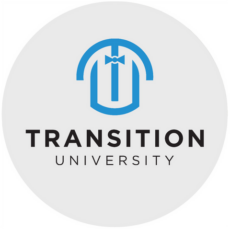
Social Relationships and My Body
According to the CDC, over half of people with disabilities report feeling lonely, and that increases to 77% once they reach the ages of 18-34. This means we may need to help our youth with disabilities actively seek out healthy and reliable friendships with others. Depending on the developmental needs of our youth, this could include the following: information, training, resources, and assisting youth in experiencing social interactions, better understanding of the human body, dating, and interpersonal relationship dynamics.
Healthy Bodies Resource
- The Vanderbilt Kennedy Center Healthy Bodies Toolkit is available for males and females. The toolkit is available online or in PDF format in English and Spanish and covers important topics such as; puberty, sex, hormones, hygiene, emotions, and more.
- Sexual Health & Youth with Developmental Disabilities | Multnomah County (multco.us)
Healthy Relationships, Intimacy, and Orientation Resource
- The website Amaze.org is available in several languages. Amaze provides resources and training videos for educators and parents. There is also a resource for junior learners to assist in teaching children and those youth who may have an intellectual disability.
Supporting Sexual Health for those with Intellectual Disabilities
- In Their Own Words: Guidelines for Supporting the Sexual Health of Young People Experiencing Intellectual/Developmental Disabilities, outlines key recommendations to help youth experiencing I/DD get the sexual health education they need, want, and deserve.
How to support the sexual health of young people experiencing intellectual disabilities:
1. Provide holistic sexual health education to young people experiencing I/DD
Recognize young people experiencing I/DD as social and sexual beings by providing them with holistic sexual health education that helps them learn:
-
- Who they are
- What their rights are
- How to express themselves
- How to build healthy relationships
2. Learn about goals for young adults
Use person-centered processes to learn about a young adult’s individual relationships, sexual and reproductive health goals and help them get the education and support they need and want.
3. Provide regular skill-building opportunities
Support the self-determination of young people by helping them build relationship and sexual health skills in group and individual settings using a variety of methods, especially:
-
- Videos
- Group discussion
- Role plays/acting
4. Facilitate peer connection
Enhance community inclusion by creating environments where young people have access to accurate, affirming sexual health information and can teach and learn from each other.
Sexual Health Resources for Those with Autism
- Organization for Autism Research is an additional resource to assist self-advocates, or those with a disability, with information regarding sexual health. This guide is a sexuality and sex education resource written specifically for autistic people age 15 and up. Autistic people sometimes don’t have the chance to learn about sexuality and sex in ways that work for them, so OAR created this guide as a starting point to change that. In each of the nine sections of the guide, self-advocates will be able to read articles and watch brief videos before testing their knowledge about a given topic and practicing new skills.
The Utah Medical Home Portal is full of information about transition and issues facing transition-age (14-22) youth. This section of the portal focuses on maturation and sexuality.






